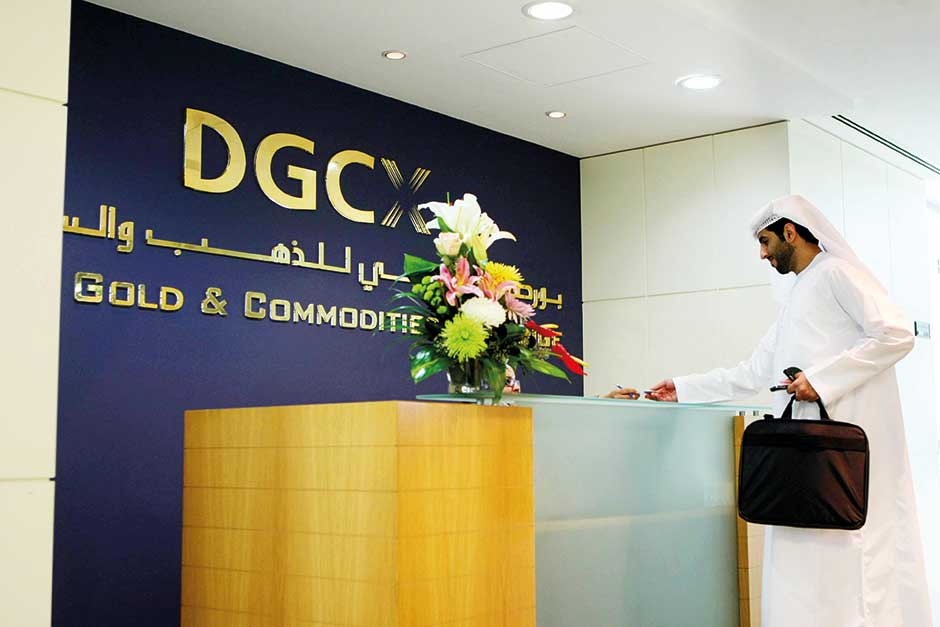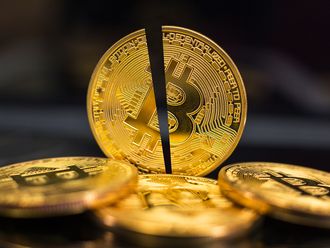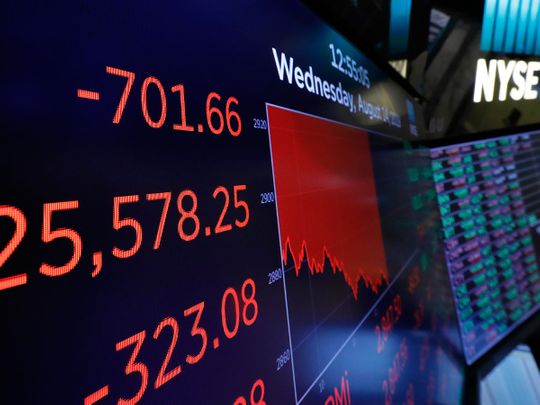
Commodities have always been closely intertwined with everyday life, be it food, energy or metals. Anyone who drives a car can become significantly impacted by rising oil prices. The impact of a drought on the soybean supply may influence the composition of your next meal.
Commodity trading covers the buying and selling of a large range of instruments including oil and gas, metals such as gold and silver and soft commodities like cocoa, coffee, wheat and sugar.
Anyone who drives a car can become significantly impacted by rising oil prices. The impact of a drought on the soybean supply may influence the composition of your next meal.
But if you were to start trading in commodities, these should be your first steps before taking the plunge. The article will gradually reveal the steps to follow after that, as and when we get a clearer understanding how to go about it.
Commodities are a high-risk, high-reward market that draw investors because of their big gains – but let’s not forget with high returns, there are risks of big losses as well.
It used to be that the average investor did not trade commodities because doing so required significant amounts of time, money and expertise, but by breaking it down will prove it’s much simpler than you think.
‘Baby steps’ 1 of 2
• Choose your market: Choose the commodity, such as Oil (Brent or West Texas), Gold or Natural Gas. There are a range of commodities you can trade, including agricultural commodities such as corn, soybean and wheat.
It's the energy markets, in the form of oil and gas trading, and metal markets (like gold and silver), however, that tend to be more popular with traders these days, which is what we will discuss in detail.
• Research is key: If you are serious about trading, a knowledge in how to trade in commodities is vital: great profits can be made if a trader has in-depth expertise in the issues driving commodity prices, and understands the mechanics of how to trade in it. The article will next branch into what drives prices and how to trade in it.

• Opening an account: Investing in a commodity (like any other investment) will require opening a brokerage account if you do not have a broker. Investors are also required to fill out a form acknowledging an understanding of the risks, which we will discuss in detail further down in this guide.
• A brokerage account is an investment account you open with a brokerage firm (like Abu Dhabi Islamic Bank Securities, Abu Dhabi Commercial Bank Securities or First Abu Dhabi Bank Securities in the UAE) using it to buy investments. The broker holds your account and acts as an intermediary between you and the investments you want to purchase or sell.
What drives commodity prices?
Like other markets, to know whether to buy or sell, one needs to gauge highs and lows by placing bets on whether the price will rise or fall. But to know that one must seek to learn what drives commodity prices to move.
To know how, one needs to know that the basic economic principles of supply and demand typically drive the commodities markets: lower supply of a commodity drives up demand, which equals higher prices, and vice versa.
Major disruptions in supply, such as a widespread health scare among cattle, might lead to a spike in the (generally stable and predictable) demand for livestock. On the demand side, global economic development and technological advances often have a less dramatic, but important effect on prices.
Now that you have learnt what drives market prices, the next decision that you need to take once you have chosen the market and opened the market is this.
‘Baby steps’ 2 of 2
• Decide deposit amount, time period: Depending on how much money you have set aside, determine how much to invest in the beginning, while having a plan for achieving your goals – like how much do you hope to gain in a how much time.
One tip to help you decide how much and how long is, play safe initially by not betting a large amount. How long you decide to invest in a certain commodity should purely be driven by studying trends (past, present and future) of what drives prices, as detailed above.
Play safe initially by not betting a large amount. How long you decide to invest in a certain commodity should purely be driven by studying trends (past, present and future) of what drives prices.
• Decide to buy or sell: This is your ‘position’ as a trader, a term that is used frequently when it comes to commodities trading. Buy (go long) if you think prices will rise, or sell (go short) if you think prices will go down.
Also remember that commodities can be kept for long term or as a place to park cash during an unusually volatile period in the stock market when share prices are declining or fluctuating rapidly. The reason behind this is commodity prices generally trade in reverse to stocks’ price movements.
Where to trade?
Commodities are traded in a similar way to other types of financial markets – it is a physical or a virtual space, where one can buy, sell or trade various commodities at current or future date. Like a stock, one can invest in a commodity through the commodity bourses or commodity markets (exchanges or platforms where they are traded).
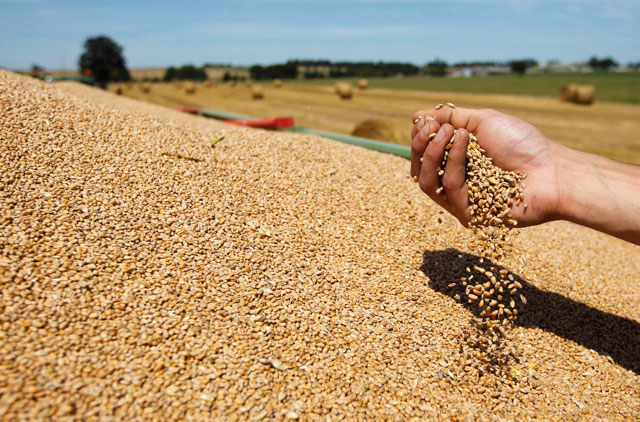
Today, there are several routes to the commodity markets, some of which encourages participation for those who are not even professional traders. We will go through some of these ways below.
There are still numerous commodity exchanges (a platform where various commodities are traded) around the world, although many have merged or gone out of business over the years.
Or like any other life hack or go-to solution, you could go online. The advent of online commodity trading means that access to global markets is now available to private traders with a modest amount of capital thanks to numerous accessible online brokers, the popular ones being IG, eToro, Plus500 or FxPro.
How to trade - Using Futures
The most popular way to invest in commodities is through a Futures contract, which is an agreement to buy or sell a specific quantity of a commodity at a set price at a later time. Futures are available for every type of commodity, be it agriculture, energy or metals.
The most popular way to invest in commodities is through a Futures contract, which is an agreement to buy or sell a specific quantity of a commodity at a set price at a later time.
For example, a long position (a contract betting that the price will rise in value in the future) on crude oil for 1,000 barrels at $75 per barrel on June 1 means that on June 1, you must buy 1,000 barrels for $75 per barrel.
In a way, these contracts are used by companies to ‘lock-in’ or ‘hedge’ the price of a particular good that they need for their business if they are concerned that its price will rise in the near future.
Producers may also use futures contracts to ensure that they get the price they want for their commodities if they are concerned about future price declines.
But it is widely recommended that because these are complicated, it should only be undertaken by experienced traders. So now we will now shed light on some points to be aware of in order to avoid any shocks or surprises when dipping your toe into commodities trading.
Risks: Dangers to commodities trading
• The main reason why commodities are increasingly risky is how they mostly trade on futures markets, which is by offering more borrowed capital for the buyer to increase the potential return of an investment (leverage).
The cost of leverage also needs to be considered as with higher the leverage, the higher your transaction cost, which eats into your trading money.
• Each commodity contract requires a different minimum deposit (dependent on the broker) for every asset contract.
• If the value of the contract decreases by a dip in market price, you will be subject to a ‘margin call’, which requires you to place more money into your account to keep your bets open (this is essentially to cover the drop in price).
Due to the huge amounts of leverage or pledged capital, small price movements can mean large gains or losses, and your account can be wiped out or doubled in a matter of minutes.

• If you don’t exit your position by the time the contract expires, you will have to either deliver or take possession of the commodity as binding in the contract you signed.
(To close or cancel out a futures contract position, a trader simply enters the opposite type of trade and the contract will be removed from the trader's account. For example, if a trader is long on a contract, a sell order will close the trade and the trader will no longer have a position in the contract.)
If you don’t exit your position by the time the contract expires, you will have to either deliver or take possession of the commodity as binding in the contract you signed.
• Like when making other investments, beware of any contractual obligations, like fees, brokerage commissions or commitments – which may not be revealed to you unless you seek to understand. Always ask about the broker’s commission or fee prior to starting the relationship.
Less risky ‘option’
In order to avoid these risks, most traders choose to invest in commodity options instead, which is widely recommended if you are an inexperienced and new trader.
Commodity options work the same as futures contracts, but only give the holder the right but not the obligation to buy or sell a particular commodity. It is not a binding contract, and when an options contract expires, the trader no longer has any obligations and his losses on the trade are minimal.
As the market fluctuates, if the trader feels that his losses are too high, he can choose to end the contract/opt out. (Keep in mind that a fee is charged when a trading position is opened, and another fee is charged when the position is closed)
Most futures contracts will also have options linked to them. Buying options on futures contracts is similar to putting a deposit on something rather than purchasing it outright; you have the right, but not the obligation, to follow through on the transaction.
Therefore, if the price of the contract doesn't move in the direction you anticipated, you have limited your loss to the cost of the option.
(For example, let’s suppose you want to buy 100,000 shares of XYZ stock for $5 per share. But either you don’t have the money at the moment to buy that much, or you are nervous that the price may drop.
So you purchase the option to buy at $5 per share for $5,000. Now you can legally buy XYZ stock for $5 per share, no matter what the share price does; the contract lasts about a month.)

Investing in commodity stocks
Many investors also use stocks of companies in industries related to a commodity in some way. For example, those wishing to make an oil play could invest in drillers, refineries, tanker companies or diversified oil companies.
Those bitten by the gold bug could purchase mining companies, smelters, refineries, or generally any firm that deals with bullion.
Another tip is that you could use stocks trading as part of an investment strategy in which you alternate stocks with commodity futures. For instance, when the prices of stocks go up, the value of commodities futures will go down.
To put it simply, stocks can be impacted by politics, geo-economics, etc., while commodity prices are directly related to inflation and cost.
You can sell your stocks and make a profit, and then use the money to invest in futures. When the value of futures starts to go up, you can sell them and then buy stocks since their value has started to decline.
Other ways
Given the complexities surrounding futures trading, and apart from options and commodity-related stock trading, there are many other ways that you can make money from the commodities market, including:
• Managed future funds. This is a type of mutual fund (a basket of different types of investments) that is managed by professional money managers. The funds are invested in futures contracts. They show returns comparable in the long-term to other asset classes, making them ideal for diversifying your investment portfolio.
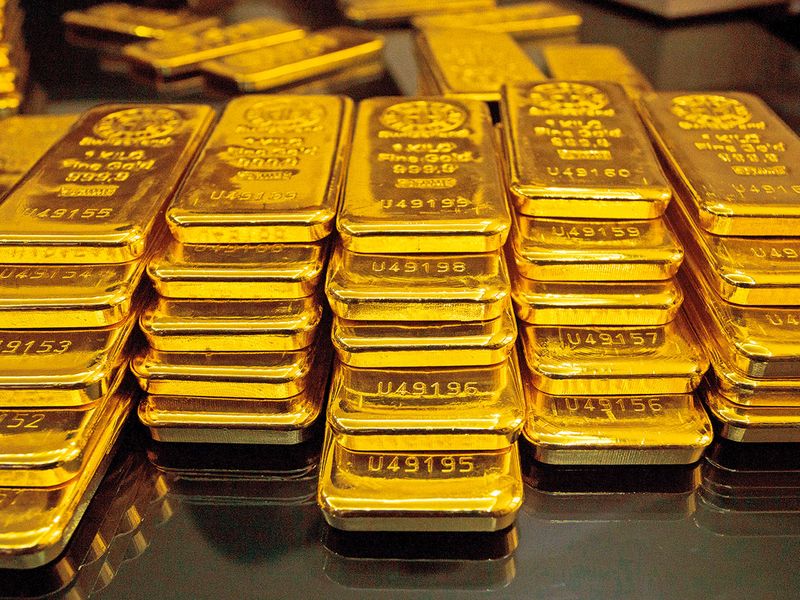
• Exchange-traded funds (ETFs). These funds consist of shares of stock from multiple commodities trading firms. For instance, a gold ETF might be comprised of stocks from mining companies that produce gold.
There are also ETFs that specialise in a single sector, i.e. agricultural products, or those that have futures from a variety of commodities. It even provides you with exposure to more unusual commodities such as soybeans and live cattle.
The downside is that you will pay more in fees since you have to shoulder the costs of managing the fund by the brokerage, although these are shared among multiple investors.
• Contracts for Difference (CFDs). This is a commonly offered product whose value reflects the price of the underlying asset. The trader or yourself takes a call (or ‘opens a position’) based on which direction he/she thinks the price will move, and then takes a profit if guessed correctly.
You can trade CFDs using leverage (through borrowing), which means you only need to deposit a small fraction of the contract’s value in order to open a position. This greatly magnifies your potential profit relative to the actual amount that you are investing. This is usually done through a brokerage.
